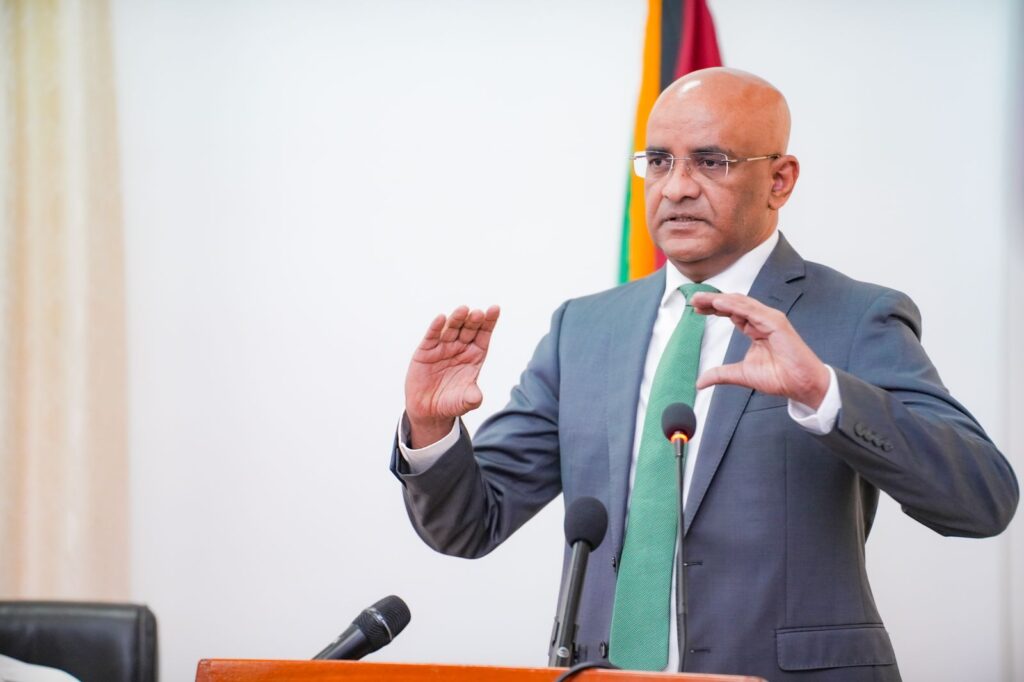The government on Thursday clarified that there is no intention to stop the Guyana Elections Commission (GECOM) from issuing identification cards even as it pushes ahead with the implementation of its new electronic identification system in Guyana.
A contract to the tune of US$34.5 million was recently awarded to a German-based Company -Veridos – for the production and issuance of new identification numbers and cards to Guyanese.
And while those new electronic cards present opportunities for the development of a range of functions and applications towards financial reform and E-governance, Vice President, Dr. Bharrat Jagdeo says the current GECOM-issued ID cards will remain.
“The ID cards will be separate from the ones GECOM uses.
“We didn’t want to collapse it into one ID card because then you will hear the PPP wants to take over GECOM’s function,” Jagdeo said in response to a question from the News Room at his press conference on Thursday.

Jagdeo said the new electronic ID cards will need separate legislation and the government is currently working on that.
Once fully implemented, the new system will also help the government with its issuance of work permits and other necessary documentation for resident identification.
The system allows for the capturing of an individual’s biographic and biometric information which will be stored centrally but printed on laser-engraved polycarbonate material using black-and-white technology with secure pre-printed designs. It will carry a chip to allow for the integration of a variety of services.
And according to Jagdeo, that biometric information will also feed into the cameras installed across the country for the purposes of facial recognition among other things.
Many countries have already implemented the electronic identification system as part of their national identity management programme to promote e-government and other services.
The cards offer fingerprint verification for cardholders with the current need for proof of address when conducting transactions at financial institutions to soon be eliminated.
The system altogether will share data internationally but focuses locally on an integrated identification system across government agencies and the private sector.












